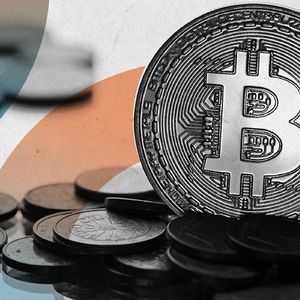Vitalik Buterin says the Nordic region’s failed attempt at going fully cashless shows exactly why Ethereum needs to be tougher. In a post on X, he warned that centralized digital payment systems are “too fragile,” linking to a Guardian article from two months ago that detailed how Sweden and Norway, the most cashless countries in the world, are now asking citizens to hold onto paper money. Vitalik wrote , “Cash turns out necessary as a backup. Ethereum needs to be resilient enough, and private enough, to be able to credibly play this kind of role.” The article he shared explained how both countries have been forced to backtrack on years of pushing for a cash-free economy. Sweden was supposed to be fully cashless by 2025, a forecast made in 2018 by a former deputy governor of the Swedish central bank. That vision nearly came true. By 2025, only 1 in 10 transactions in Sweden are done with cash. Cards lead, followed by Swish, a mobile payment app created by six Swedish banks. But now, security threats have forced the government to reverse direction. Sweden tells citizens to store paper money for wartime use The Swedish central bank’s latest payments report says the country has the lowest amount of physical money in circulation as a share of GDP. But in the face of possible war in Europe, cyberattacks, and instability in the US, the government no longer believes that’s a good thing. In November, the Swedish defense ministry mailed a national survival brochure titled If Crisis or War Comes to every home. It asked people to use cash regularly and keep at least a week’s worth of bills in various denominations. The central bank backed that in the same report, saying efforts must now move from pure efficiency to ensuring everyone can still pay during a crisis. “Measures need to be taken to strengthen preparedness and reduce exclusion,” the bank said. Until now, Sweden’s priority was speed and ease. But current risks forced a pivot. The government then released an inquiry in December proposing that some businesses be required to accept cash again. The bank agreed and urged that this plan be enforced. Sweden also previously worked on a central bank digital currency, the e-krona, as cash use dropped. But that plan stalled and was dropped entirely a few years ago. Now, the bank is only “monitoring” how other countries are handling digital currencies. Norway forces retailers to accept cash or face punishment Norway is facing the same issues. It has a Swish-style system called Vipps MobilePay, which is widely used. But in 2024, the Norwegian government passed a law making it illegal for retailers to reject physical money. If they do, they face fines and other penalties. The law came after warnings from officials about how exposed the system is to cyberattacks. Norway’s justice and emergencies minister at the time, Emilie Mehl, said clearly: “If no one pays with cash and no one accepts cash, cash will no longer be a real emergency solution once the crisis is upon us.” Her statement summarized what both countries now believe: that if all payments are digital, then none are safe during a real emergency. The Norwegian government has also officially asked the public to keep physical money at home in case mobile networks or digital systems fail. This is now considered a civil defense measure, not financial advice. The Nordic countries that once bragged about leading the way into the future are now printing leaflets to remind people how to use cash again. For Vitalik, this is all proof that Ethereum has to go beyond just scaling. It has to be reliable when everything else is broken. Not reliant on governments, not dependent on centralized infrastructure. “Private enough” and “resilient enough” aren’t buzzwords here, said Vitalik, adding that he’s pushing Ethereum to become a fallback that works even when nothing else does. The same countries that tried to delete cash from their economy are now counting on it in case of war. Sweden’s government is requiring businesses to accept cash again. Norway is punishing retailers who don’t. Central banks that once pushed for total digital transitions are now telling people to carry emergency paper money. Meanwhile, Ethereum, which is decentralized by design, still isn’t ready, according to Vitalik. Your crypto news deserves attention - KEY Difference Wire puts you on 250+ top sites


















